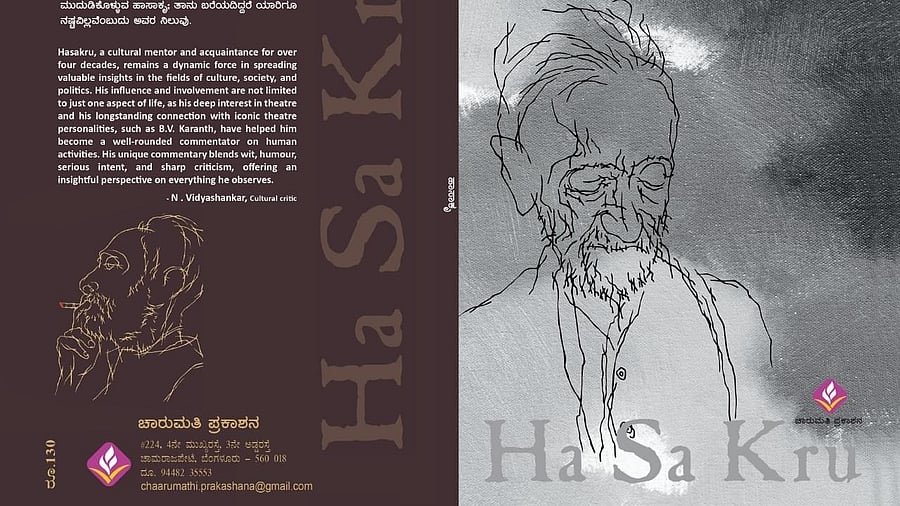
Credit: Special Arrangement
Despite being a well-known personality in literature, theatre, cinema, and progressive social movements in Karnataka, H S Krishnamurthy (Hunsur Srikantaiah Krishnamurthy), also known as HaSaKru, remains relatively unknown outside the circles of these cultural and social movements. This is because HaSaKru always remained ‘Sri Samanya’ or the common man. He resembled B V Ramamurthy’s Mr Citizen cartoon in Deccan Herald, except for the coat and kache-panche, and was similarly rooted in raising issues of the everyday person.
Interestingly, HaSaKru weighed his life’s decisions in favour of those he regarded as ‘common’ or ‘ordinary’, terms that, though vague and open to interpretation, formed the basis of his worldview. A worker, activist, journalist, and writer, he used his self-designated descriptor ‘ordinary’ to deflect criticism.
ExLibris-Osage, a multimedia platform started by HaSaKru’s friends, including film and theatre activist and musicologist M K Shankar, with support from Charumathi Publication, has released a short bilingual book on HaSaKru. The project was a collaboration between journalist Madhava Prasad, writer and theatre activist N K Mohan Ram, and well-known film critic and writer N Vidyashankar.
These were individuals who were restless and seeking, wondering if they could better understand the confusing world around them through theatre, music and arts. This volume, which reflects bygone times, was released at an informal function at the Suchitra Cinema and Cultural Academy. In many ways, the 128-page volume mirrors the winding and challenging path that HaSaKru himself has traversed. While N K Mohan Ram edited the Kannada section, M K Shankar handled the English chapters. Many theatre personalities who worked with HaSaKru shared their experiences in the book as well. Sudesh Mahan’s evocative cover and Gujjarappa’s drawings elevated the content further.
Now in his early eighties, HaSaKru shows no signs of slowing down. His anger, concern for
the common man, and frustration over deteriorating social and
political values remain undiminished. A ten-minute conversation with him reveals a deep understanding of worldly affairs. One of HaSaKru’s trademarks is his self-deprecating humour, even while discussing serious issues relating to the Left and the socialist movements of his time.
Central figure
“During the 70s and 80s, HaSaKru was a central figure in our lives, acting as a link between people from diverse backgrounds and professions. Even though our circle was loosely knit
and interactions varied, his role was unmistakable,” says M K Shankar.
Shankar also notes, “Habib Tanvir’s life and work resonated with HaSaKru’s intellectual leanings. He was captivated by both. He was also influenced by Badal Sarkar, the theatre director known for anti-establishment plays.”
Madhava Prasad, professor of Cultural Studies at the English and Foreign Languages University, Hyderabad, and a close associate of HaSaKru, recalls: “In Bangalore, apart from the newspaper office and Press Club, HaSaKru could be found
at Ravindra Kalakshetra, sitting on the steps, smoking beedis,
and talking about theatre. At
parties, his favourite song to sing was always Ibbarendira sukhavanindu kande, a popular song from the play Sattavara neralu, directed by B V Karanth, in
which he also played a role.”
A significant moment in HaSaKru’s life was when he was cast as Hasan in David Lean’s A Passage to India.